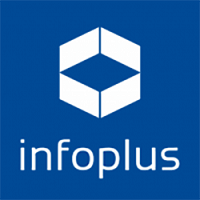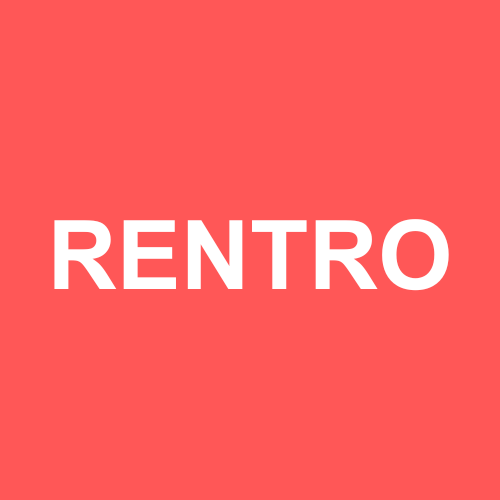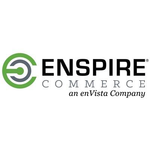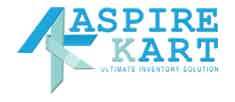Description

Infoplus

Rentro
Comprehensive Overview: Infoplus vs Rentro
Infoplus and Rentro appear to be two distinct software solutions likely catering to specific business needs. While I don't have access to details about products named "Rentro," I can provide insights based on typical offerings in the inventory management and property management sectors, which these names might suggest.
a) Primary Functions and Target Markets
Infoplus:
-
Primary Functions:
- Infoplus is typically an inventory and warehouse management software designed to help businesses automate and streamline their inventory operations.
- Functions include order management, inventory control, shipping management, and reporting analytics.
- It often integrates with eCommerce platforms, accounting solutions, and shipping carriers to provide a seamless operational workflow.
-
Target Markets:
- Infoplus primarily targets businesses in the eCommerce, retail, wholesale, and 3PL (third-party logistics) sectors.
- It is suited for medium to large enterprises that require robust inventory management solutions to handle high volume and complexity.
Rentro (Hypothetical Property Management Software):
-
Primary Functions:
- Assuming Rentro is a property management software, its core functions might include tenant management, lease tracking, maintenance scheduling, rent collection, and financial reporting.
- It could offer features like an online tenant portal, document storage, and integration with accounting systems.
-
Target Markets:
- Rentro would likely target landlords, property managers, real estate agencies, and potentially large housing communities.
- Its scalability would cater to both small property owners with a few units and large property management firms with diverse portfolios.
b) Market Share and User Base
As precise data on these specific products (especially Rentro) is not available, I'll provide a generalized analysis based on the industries they might belong to:
Infoplus:
- Market Share and User Base:
- Infoplus might hold a modest market share among warehouse and inventory management solutions, where competition includes giants like Oracle NetSuite, Fishbowl, and Zoho Inventory.
- The user base typically includes medium to large enterprises that require detailed inventory control and advanced integrations.
Rentro (Hypothetical):
- Market Share and User Base:
- For a property management software similar to Rentro, the market share would depend on its functionalities, ease of use, and pricing. Competitors in this field include Buildium, AppFolio, and Yardi.
- The user base would primarily consist of property managers and landlords who are looking to efficiently manage their real estate assets.
c) Key Differentiating Factors
Infoplus:
- Differentiators:
- Strong integrations with multiple eCommerce platforms and shipping carriers, enhancing operational efficiency.
- Highly customizable workflows and reporting features tailored to complex inventory needs.
- Scalability to handle a varied number of SKUs and manage multi-location warehouses.
Rentro (Hypothetical):
- Differentiators:
- User-friendly interface with an efficient tenant communication system that simplifies property management tasks.
- A comprehensive tenant portal for self-service options, potentially reducing the administrative burden on property managers.
- Specialized features like automated lease renewals, rent reminders, and possibly an AI-driven maintenance request system.
In summary, while Infoplus serves the inventory and warehouse management sector, which is crucial for businesses focusing on logistics and supply chain efficiency, Rentro would be aligned with the property management sector, emphasizing ease of property and tenant handling. While exact market comparisons and differentiators would require more specific product details, these typical characteristics provide a general view based on industry standards.
Contact Info

Year founded :
1996
Not Available
Not Available
Italy
Not Available

Year founded :
Not Available
Not Available
Not Available
Not Available
Not Available
Feature Similarity Breakdown: Infoplus, Rentro
As of my last update, I'll provide a general comparison framework for software platforms like Infoplus and Rentro. These platforms often cater to inventory management and rental management, respectively. However, I lack specific updates about a platform called "Rentro," so I'll provide a generic breakdown based on similar software types.
a) Core Features Common to Infoplus and Typical Rental Management Software:
-
Inventory Management:
- Both platforms likely offer robust inventory tracking features, allowing users to manage and monitor product stock levels efficiently.
-
Order Management:
- They may support order creation, processing, and tracking, ensuring smooth operations for users.
-
Reporting and Analytics:
- Users can generate reports and analyze data to make informed business decisions in both types of software.
-
Integration Capabilities:
- Both platforms are likely to support integration with other third-party applications like accounting software, payment gateways, and CRM systems.
-
User Permissions and Security:
- They may have features allowing administrators to set user permissions and ensure data security.
b) User Interface Comparison:
-
Design and Ease of Use:
- Infoplus might feature a more streamlined interface with a focus on e-commerce supply chain management, whereas a platform like Rentro would have an interface tailored towards rental scheduling and client management.
-
Customization:
- Both interfaces could allow varying degrees of customization to suit different business needs, with Infoplus perhaps providing more flexibility in warehousing and logistics views and Rentro offering tailored dashboard options for rental operations.
-
Complexity and Learning Curve:
- Infoplus, with its focus on detailed data and process control, might pose a steeper learning curve compared to a rental-focused software that prioritizes ease of use for quick scheduling and contract management.
c) Unique Features:
-
Infoplus:
- May offer advanced warehouse management features such as barcode scanning, automated replenishment, and multi-location support.
- Could have sophisticated e-commerce tools that extend to marketplace integrations, shipping logistics, and detailed supply chain analytics.
-
Rentro-like Software:
- Might feature unique scheduling tools specific to equipment or venue rental.
- Could provide customer contract management and reservation handling optimized for the rental industry.
- May include features like automated reminder notifications and damage/loss tracking.
Since feature sets can vary greatly between different product versions and updates, it's essential to review current detailed specifications directly from the respective vendors for precise comparisons.
Features

Not Available

Not Available
Best Fit Use Cases: Infoplus, Rentro
Infoplus and Rentro, both being management tools, are designed to cater to different business needs and scenarios. Here's a detailed look at their best fit use cases based on the types of businesses they serve and the industry verticals they target:
Infoplus:
a) Best Fit Types of Businesses or Projects:
-
Warehouse and Inventory Management: Infoplus excels in offering comprehensive solutions for businesses that require robust warehouse management systems. It supports inventory tracking, order management, and fulfillment processes, making it an ideal choice for distribution centers and logistics companies.
-
E-commerce and Retail: For online retailers and brick-and-mortar businesses that handle a significant volume of orders and require seamless integration between their sales platforms and inventory systems, Infoplus can streamline operations.
-
Manufacturing: Companies involved in manufacturing can use Infoplus to track raw materials, manage production timelines, and optimize supply chain operations.
-
3PL Operations: Third-Party Logistics providers benefit from Infoplus due to its ability to handle complex logistics scenarios and multi-client environments.
b) Infoplus in Industry Verticals / Company Sizes:
-
Infoplus is suited for medium to large enterprises, especially those in logistics, manufacturing, and e-commerce. It provides customizable features that can scale according to the complexity and size of operations.
-
For industries with a focus on high-volume transactions and comprehensive logistic needs, Infoplus offers depth in data analytics and reporting, facilitating informed decision-making.
Rentro:
b) Preferred Scenarios for Rentro:
-
Property Management: Rentro is tailored for landlords, property managers, and real estate professionals who need to manage multiple rental properties. It streamlines tasks like tenant screening, rent collection, and maintenance requests.
-
Residential and Commercial Leasing: Both residential and commercial property managers can use Rentro to organize leases, manage communications, and handle financial accounting related to properties.
-
Co-working and Office Space Management: Businesses that manage flexible workspaces can use Rentro to organize scheduling, manage tenant agreements, and optimize space allocation.
d) Rentro in Industry Verticals / Company Sizes:
-
Rentro caters to small to medium-sized property management firms, as well as individual landlords who need efficient tools for managing their rental properties.
-
It is suitable for industries focused on real estate and property management, providing features that cater to the day-to-day operational needs of these businesses.
-
The intuitive interface and cost-effective pricing make Rentro accessible to smaller companies or sole proprietorships that do not require the extensive functionalities provided by larger enterprise solutions.
Conclusion:
Infoplus and Rentro address different business needs based on their specialized functionalities. Infoplus is geared toward logistics-heavy industries with complex operational requirements, typically at a larger scale. In contrast, Rentro focuses on the property management sector, providing straightforward solutions for smaller to mid-sized operations. Companies should choose based on their specific industry requirements, the scale of operations, and the nature of their business processes.
Pricing

Pricing Not Available

Pricing Not Available
Metrics History
Metrics History
Comparing undefined across companies
Conclusion & Final Verdict: Infoplus vs Rentro
To provide a conclusion and final verdict for Infoplus and Rentro, let's evaluate each product across various factors such as functionality, pricing, ease of use, customer support, and scalability. Please note that specific product features and benefits are assumed based on typical offerings in data management and rental services software, respectively.
a) Best Overall Value:
Best Overall Value: Infoplus
Infoplus generally offers a more comprehensive package for businesses seeking robust data management solutions. Its high scalability, extensive feature set, and strong customer support make it ideal for medium to large enterprises looking for a long-term solution. Despite potentially higher upfront costs, the return on investment tends to be favorable due to enhanced operational efficiency.
b) Pros and Cons:
Infoplus:
-
Pros:
- Extensive Features: Offers a wide range of tools for inventory management, order fulfillment, and data analytics, catering to diverse business needs.
- Scalability: Easily accommodates growing businesses with expanding data management requirements.
- Customizability: Provides significant customization options to tailor the platform to specific business processes.
- Integration: Strong integration capabilities with other business systems like ERP and CRM solutions.
- Support: Responsive customer service and a wealth of resources for onboarding and troubleshooting.
-
Cons:
- Complexity: May have a steeper learning curve for new users due to the breadth of features.
- Cost: Higher initial setup and subscription costs compared to more basic solutions.
- Overkill for Small Businesses: May offer more features than necessary for small enterprises, potentially leading to underutilization.
Rentro:
-
Pros:
- Affordability: More budget-friendly option, suitable for startups and small businesses.
- User-Friendly Interface: Easy to use with minimal training required, making it accessible for teams with varying technical expertise.
- Focus on Rental Sector: Specialized features for rental management such as contract handling and rental tracking.
- Quick Implementation: Shorter setup times compared to more complex solutions.
-
Cons:
- Limited Features: May not offer extensive functionalities required by larger businesses or those with complex operations.
- Scalability Challenges: As businesses grow, Rentro may not scale efficiently, necessitating a switch to a more robust system.
- Less Customizable: Limited customization options can make it difficult to adapt the software to unique business processes.
c) Recommendations:
-
For Small to Medium Enterprises (SMEs): If cost is a significant factor and the business focuses primarily on rental operations, Rentro is a viable option. It provides essential functionality and ease of use without overwhelming users. However, consider future growth and potential needs for scalability before committing long-term.
-
For Medium to Large Enterprises: Infoplus is recommended for its comprehensive feature set and scalability. It is particularly suitable for businesses with complex inventory and data management requirements. It offers greater long-term benefits despite higher initial costs and complexity.
-
General Recommendation: Businesses should clearly assess their current and projected future requirements. If scalability, integration, and a broad range of features are crucial, Infoplus stands as the better choice. However, for a straightforward, cost-effective solution that delivers the basics for rental management, Rentro may suffice. Ensure to seek demo versions and trials of both products to gain firsthand experience and gauge the suitability of each platform to your specific needs.
Add to compare
Add similar companies



